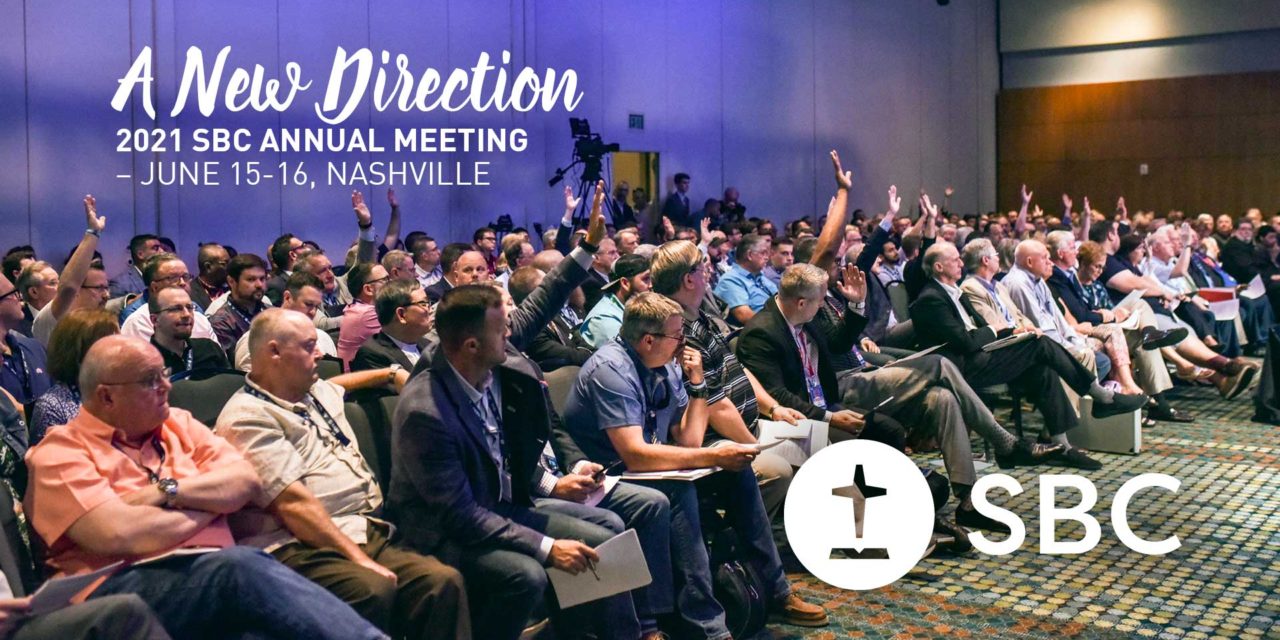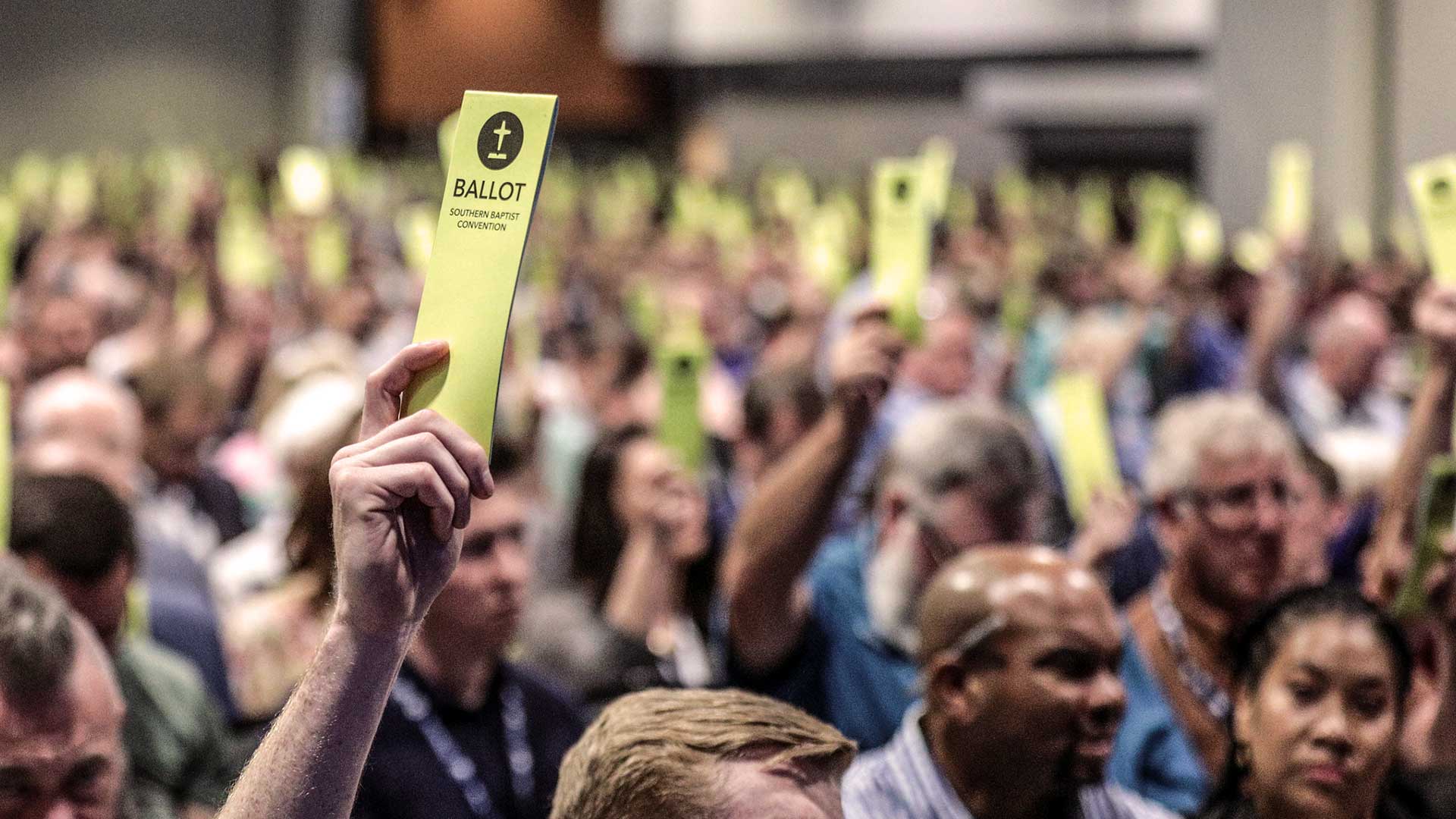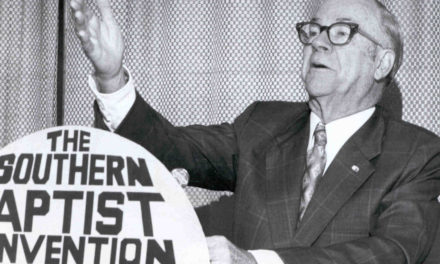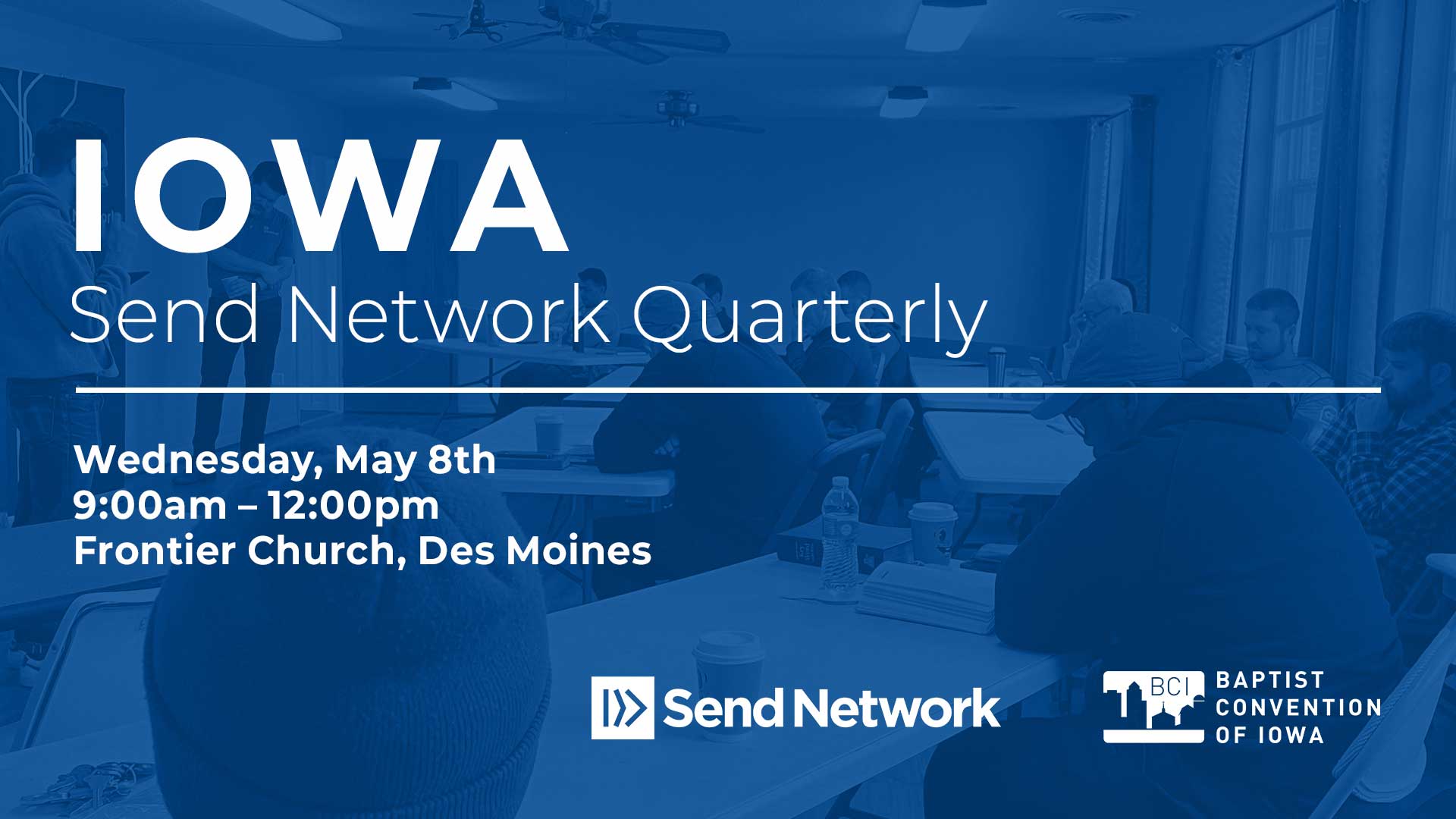Southern Baptists gathered in Nashville, TN, June 15-16 for the 2021 Annual Meeting. This was the first Annual Meeting in two years after the 2020 meeting was canceled due to COVID. With 15,769 registered messengers attending the 2021 meeting, this was the largest gathering of Southern Baptists at an Annual Meeting since 1995. More than 30 messengers attended representing Iowa churches.
As outgoing SBC President, J.D. Greear observed in his address to the convention,
I believe we are at a defining moment in our convention, at a crossroads. In fact, if I can be so bold, it might be the most important crossroads in our generation. Forty years ago, a previous generation of Southern Baptists came to a defining moment, a moment in which they considered whether they would hold fast to the authority of God’s word, whether they were going to follow the path of every other major denomination in America into the darkness of liberalism and the wilderness of cultural accommodation.
The Annual Meeting began under a cloud of controversy following the leak of two incendiary letters by former president of the Ethics & Religious Liberty Commission, Russell Moore. Moore resigned from the ERLC June 1 to take a position with Christianity Today and with a non-SBC church.
Moore’s letters are an example of conflict at the highest levels of SBC life.
Great Commission Baptists
The theme of this year’s Annual Meeting was “We Are Great Commission Baptists.”
During his convention address Greear noted, “My prayer is that this will be more than a theme for our annual meeting, that it will be a declaration of who we are and who we aspire to be. Our convention is a coalition of churches committed to doing whatever it takes to get the gospel to those who haven’t heard it.”
Election of New SBC President
A primary item of business during Day 1 of the SBC Annual Meeting was the election of a new president. J.D. Greear served a three-year term after last year’s convention was cancelled.
Four men were nominated to become the new SBC president:
- Randy Adams, who serves as the Executive Director of the Northwest Baptist Convention.
- Ed Litton, who serves as pastor of Redemption Church in Saraland, AL.
- R. Albert Mohler, who serves as president of the Souther Baptist Theological Seminary.
- Mike Stone, who serves as pastor of Emmanuel Baptist Church in Blackshear, GA.
Ed Litton was elected president in a runoff with 52 percent of the messengers voting for him versus 48 percent voting for Mike Stone. The divided election results may have disappointed some messengers, but we pray that Ed Litton will carefully lead in a way that represents all Southern Baptists.
Resolutions of the Southern Baptist Convention
The Resolutions Committee, chaired by James Merritt, presented 10 resolutions to the messengers for consideration. These included,
- Baptist Unity and Maintaining Our Public Witness — the priority of Christians to “walk worthy of their calling” and “make every effort to keep the unity of the Spirit” (Eph. 4:1–3).
- On the Sufficiency of Scripture for Race and Racial Reconciliation — affirming that Scripture in “inspired by God” (2 Tim. 3:16–17) and that all people are “one in Christ Jesus” (Gal. 3:26–28).
- On Taxpayer Complicity in Abortion and the Hyde Amendment — affirms the sanctity of human life (Gen. 1:27; 9:6) and opposes the use of taxpayer money to fund abortion procedures.
- On the Equality Act — affirms that God created two distinct sexes (Gen. 1:27; Matt. 19:4) and opposes the Equality Act that “seeks to revise the Civil Rights Act of 1964 by adding a prohibition of discrimination on the basis of sexual orientation or gender identity.”
- On Abuse and Pastoral Qualifications — affirms that Scripture teaches pastors, elders and overseers are to be “above reproach” (1 Tim. 3:2) and states that any person who has committed sexual abuse should be permanently disqualified from holding the office of pastor.
- On Sole Membership — upholds the Southern Baptist foundational belief that each individual church member is in a “legal relationship” with the SBC and convention entities and that only the convention in session — not the Executive Committee — is the legal “sole member” of the various agencies and institutions of the convention.
- On the Uyghur Genocide — denounces atrocities inflicted by the Communist Party of China against the Uyghur people.
- On the Coronavirus Pandemic — expresses grief for the more than 3.78 million lives lost during the COVID-19 pandemic.
- On Appreciation for the City of Nashville — adds an extra emphasis because of how many top officials worked together to allow the SBC Annual Meeting to continue in Nashville when restrictions were still an issue up until a few weeks prior.
The messengers also voted by two-thirds majority to call one additional resolution out of committee that the Resolutions Committee chose not to present. This resolution, which passed, called for the Abolition of Abortion, immediately and without compromise.
All the resolutions were approved by the messengers.
Critical Race Theory
Since the approval of Resolution 9 by the SBC in 2019, there has been strong disagreement over the acceptance of Critical Race Theory/Intersectionality by the convention.
According to Kimberlé Crenshaw, one of the leading scholars to develop Critical Race Theory and Intersectionality,
It is an academic discipline composed of civil-rights scholars in the United States who seek to critically examine the law to show, first, that it maintains white supremacy, white power, and enforces societal or structural racism; and, second, that transforming the relationship between law and racial power, and also achieving racial emancipation more broadly, is possible.
Many Southern Baptists have argued that CRT is incompatible with the New Testament teachings concerning racial reconciliation and the hope for true unity found through the gospel.
The Resolution Committee chose to omit any mention of Critical Race Theory in Resolution 2, which was submitted to reverse the decision of Resolution 9 in 2019 that affirmed Critical Race Theory and Intersectionality as an analytical tool to help Southern Baptist better understand racism in America.
When a motion was made from the floor to specifically address Critical Race Theory in Resolution 2, James Merritt made an impassioned statement:
It’s time to find out who we are and where we are headed. If some people were as passionate about the gospel as they were CRT, we’d win this world to Christ tomorrow.
We are all created in the image of God. We’ve been given the ministry of reconciliation.
We are not the 2019 Resolutions Committee. We are the 2021 Resolutions Committee. We are not going to limit anything to just one thing (responding to questions about the resolution on race and racial reconciliation, see above).
What we have done in this resolution is settle this issue once and for all, yesterday today and forever. We reject any theory that the problem is anything other than sin and the solution is anything other than salvation.
There is a world watching out there and this (division about CRT) is exactly what they want.
We can either build bridges and tear down walls or we can put up walls and tear down bridges.
To build a bridge it takes hard work, sacrifice, commitment to reach to the other side but do everything we can to get them there.
IMB Sending Celebration
BBy many accounts, the highlight of the week happened before the Annual Meeting began at the Send Conference, a joint event of the North American Mission Board and the International Mission Board. Monday, June 14, at the conclusion of the Send Conference, the International Mission Board presented 64 missionaries to be sent to foreign fields around the world.
Reflecting on the difficulties presented by the COVID pandemic and 20202, IMB President Paul Chitwood stated, “I questioned at times if we would be able to do everything that is necessary to appoint, train and deploy new missionaries in the midst of a global pandemic. But by God’s grace and with His help, your sending of missionaries through the IMB has not. even. slowed.”
The majority of the 2021 missionaries being sent were presented from behind a screen to conceal their identity because they are going to nations where it isn’t possible to get a missionary visa.
Future Impact of SBC 2021
While the decisions and statements made in Nashville during the 2021 SBC Annual Meeting have little direct impact on Iowa Churches, it does signal the current values of the convention messengers. Local church autonomy is still the hallmark of the Southern Baptist Convention and ensures that each local congregation holds full control over their own doctrinal positions and missional efforts. Southern Baptists agree to voluntarily cooperate for the gospel and the expression of this cooperation is in giving to international and local missions and for theological training of leaders through the Cooperative Program.
Next week, we will examine one of the key initiatives to be approved by the messengers to the 2021 SBC Annual Meeting: Vision 2025.
Have a BCI church story to share?
We love to share stories of BCI churches and draw attention to the work God is doing in our convention. Submit your story using the online form.










